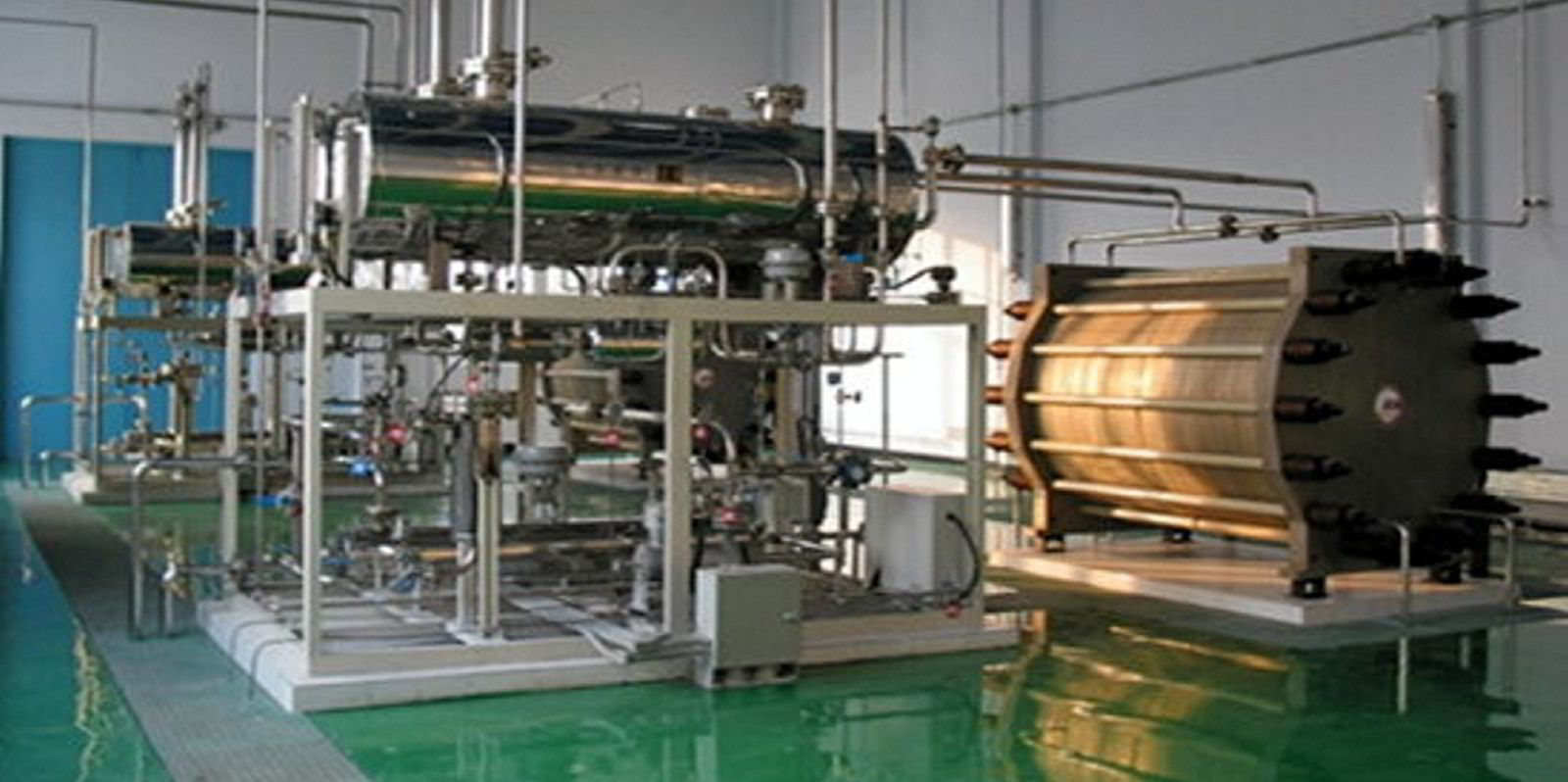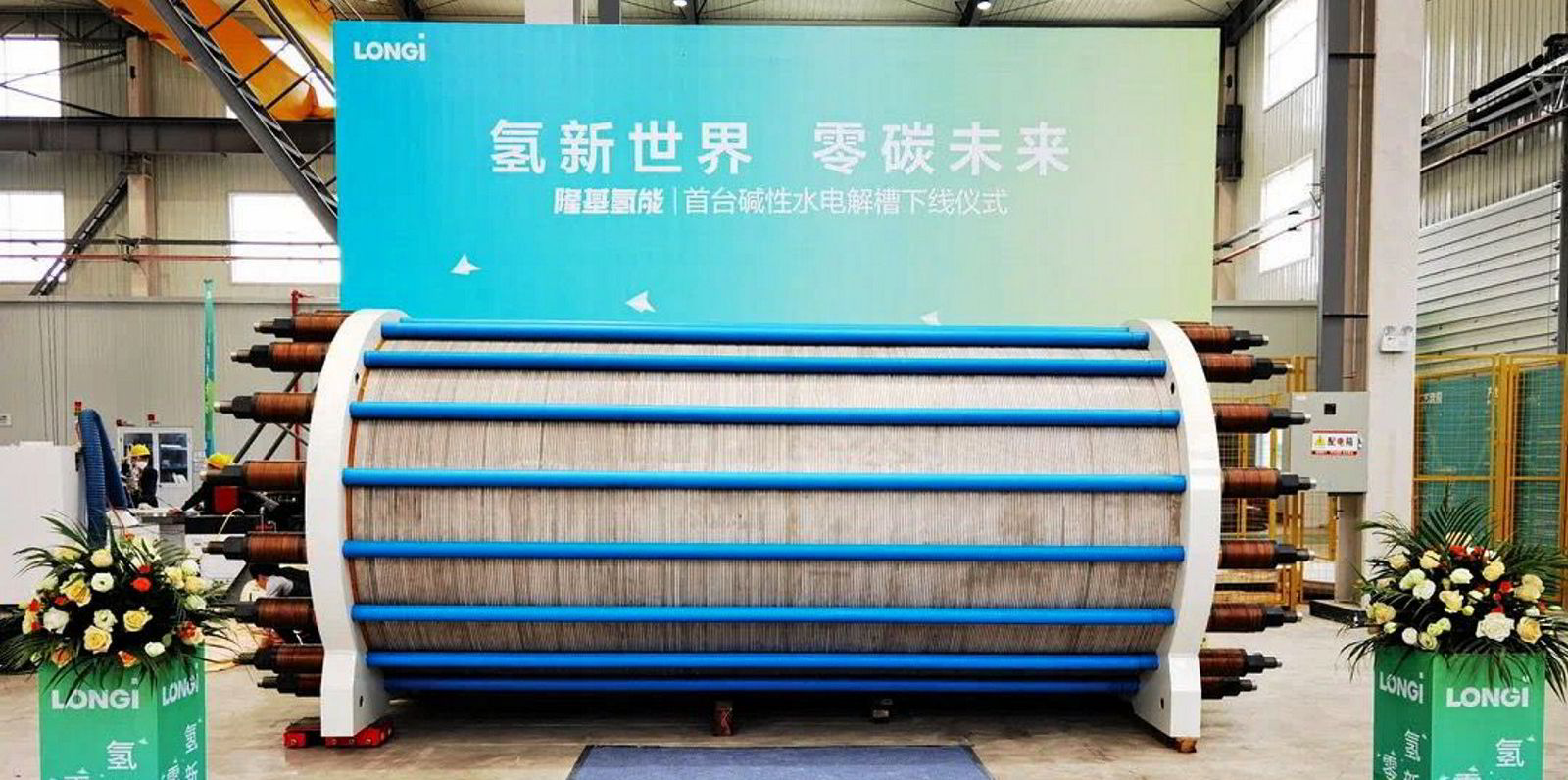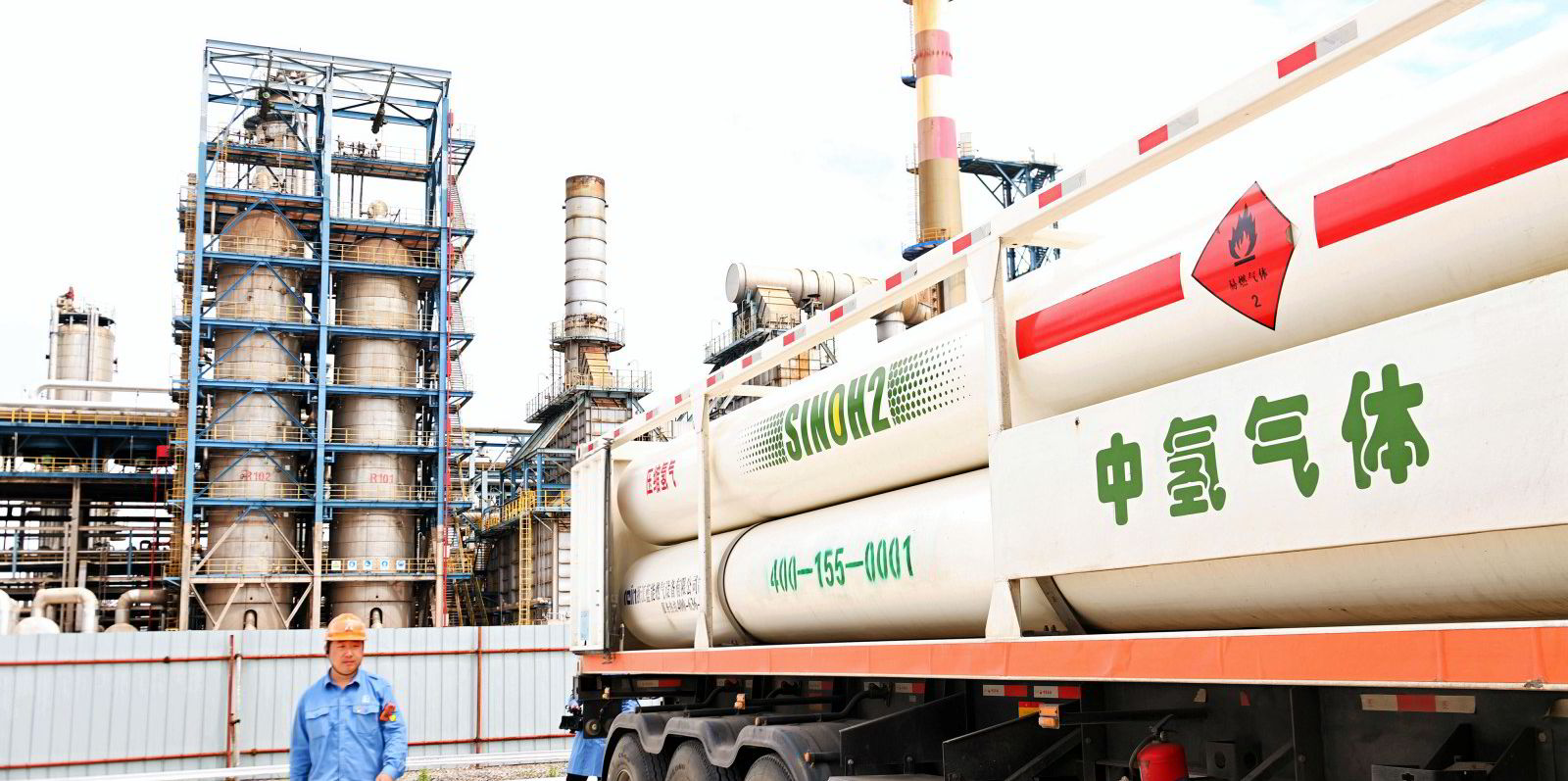Despite being far cheaper to buy, inferiority of Chinese electrolysers means their levelised cost of H2 would actually be higher, says China Hydrogen Energy & Fuel Cells Industry Innovation Strategic Alliance

An electrolyser system installed in China by Tianjin-based manufacturer CNTHE.
Photo: CNTHE
19 April 2022
By Hack Heyward
Chinese electrolysers are less efficient and reliable than Western machines, and despite being up to four times cheaper to buy, would actually result in a higher levelised cost of hydrogen due to their lower efficiencies and shorter operating lifetimes, according to a Chinese-language report from Beijing-based trade association China Hydrogen Energy & Fuel Cells Industry Innovation Strategic Alliance (CHEFCIISA).
European machines “are much more advanced in heat reclamation technologies” and manage gas flow better than their Chinese counterparts, thus increasing overall efficiency and economic advantage, says the paper, entitled China Hydrogen Energy & Fuel Cell Industry Development Report 2021.
European control systems are superior, resulting in better balanced loads, and degrade at a slower rate, resulting in longer lifetimes, it adds.
CHEFCIISA explains that Chinese-made electrolysers have thicker separators in the electrolyser stacks — 1mm, compared to less than 0.5mm in the West — resulting in lower current densities and therefore lower efficiencies.
Chinese machines also tend to use inferior core materials compared to European equipment. For example, Chinese electrolyser electrodes tend to be made from porous nickel, while Europe has already progressed to “high-performance nickel-based alloy”, says the report.
“China has a long way to go in terms of hydrogen-generation efficiencies,” CHEFCIISA says.
Article continues below the advert
The China Hydrogen Alliance — a rival trade body — believes that locally produced machines will be able to achieve operating lifetimes of 100,000 hours by 2030, up from about 60,000 hours today.

Will US and European green hydrogen markets soon be flooded by cheap Chinese electrolysers?Read more
In February, analyst Bloomberg NEF revealed in a report that Chinese electrolyser systems are up to four times cheaper than Western equivalents — $300/kW compared to $1,200/kW — and that Chinese OEMs had begun exporting their machines to the US and Europe.
Similar price discrepancies in the solar industry in the 2010s saw the previously world-leading European solar manufacturing sector collapse in the space of a few years as cheaper Chinese modules flooded the market.
But the CHEFCIISA report suggests that Western electrolyser makers do not have to worry about history repeating — at least, not yet. Chinese OEMs are aware of their products’ shortcomings and working to improve their technology.
For instance, CNTHE, China’s third-largest electrolyser maker is developing a pressurised alkaline machine that would increase the hydrogen output from each MWh of electricity and be more responsive to the ups and downs of wind and solar power than the traditional unpressurised alkaline electrolysers typically made by European manufacturers.

'China should install 100GW of green hydrogen by 2030', says Beijing-supervised body
Beijing also has a number of national-level R&D projects to advance its hydrogen industry, including schemes to increase efficiencies of locally made alkaline and PEM (proton-exchange membrane) electrolysers.
In a bid to encourage the development of electrolysers and the economies of scale that can reduce prices further, several cities and provinces are now offering generous subsidies for green hydrogen production.
For example, the city of Guangzhou and the province of Sichuan are offering cheap electricity for electrolytic hydrogen producers, while the island of Zhoushan, near Shanghai, will both subsidise the power used and pay for 20% of the cost of the electrolyser system.
Hack Heyward is a Mandarin-speaking American economist based in Shenzhen, China. Hack specialises in clean energy and has worked on hydrogen energy and fuel-cell vehicle projects around the world.
19 April 2022
By Hack Heyward
Chinese electrolysers are less efficient and reliable than Western machines, and despite being up to four times cheaper to buy, would actually result in a higher levelised cost of hydrogen due to their lower efficiencies and shorter operating lifetimes, according to a Chinese-language report from Beijing-based trade association China Hydrogen Energy & Fuel Cells Industry Innovation Strategic Alliance (CHEFCIISA).
European machines “are much more advanced in heat reclamation technologies” and manage gas flow better than their Chinese counterparts, thus increasing overall efficiency and economic advantage, says the paper, entitled China Hydrogen Energy & Fuel Cell Industry Development Report 2021.
European control systems are superior, resulting in better balanced loads, and degrade at a slower rate, resulting in longer lifetimes, it adds.
CHEFCIISA explains that Chinese-made electrolysers have thicker separators in the electrolyser stacks — 1mm, compared to less than 0.5mm in the West — resulting in lower current densities and therefore lower efficiencies.
Chinese machines also tend to use inferior core materials compared to European equipment. For example, Chinese electrolyser electrodes tend to be made from porous nickel, while Europe has already progressed to “high-performance nickel-based alloy”, says the report.
“China has a long way to go in terms of hydrogen-generation efficiencies,” CHEFCIISA says.
Article continues below the advert
The China Hydrogen Alliance — a rival trade body — believes that locally produced machines will be able to achieve operating lifetimes of 100,000 hours by 2030, up from about 60,000 hours today.

Will US and European green hydrogen markets soon be flooded by cheap Chinese electrolysers?Read more
In February, analyst Bloomberg NEF revealed in a report that Chinese electrolyser systems are up to four times cheaper than Western equivalents — $300/kW compared to $1,200/kW — and that Chinese OEMs had begun exporting their machines to the US and Europe.
Similar price discrepancies in the solar industry in the 2010s saw the previously world-leading European solar manufacturing sector collapse in the space of a few years as cheaper Chinese modules flooded the market.
But the CHEFCIISA report suggests that Western electrolyser makers do not have to worry about history repeating — at least, not yet. Chinese OEMs are aware of their products’ shortcomings and working to improve their technology.
For instance, CNTHE, China’s third-largest electrolyser maker is developing a pressurised alkaline machine that would increase the hydrogen output from each MWh of electricity and be more responsive to the ups and downs of wind and solar power than the traditional unpressurised alkaline electrolysers typically made by European manufacturers.

'China should install 100GW of green hydrogen by 2030', says Beijing-supervised body
Beijing also has a number of national-level R&D projects to advance its hydrogen industry, including schemes to increase efficiencies of locally made alkaline and PEM (proton-exchange membrane) electrolysers.
In a bid to encourage the development of electrolysers and the economies of scale that can reduce prices further, several cities and provinces are now offering generous subsidies for green hydrogen production.
For example, the city of Guangzhou and the province of Sichuan are offering cheap electricity for electrolytic hydrogen producers, while the island of Zhoushan, near Shanghai, will both subsidise the power used and pay for 20% of the cost of the electrolyser system.
Hack Heyward is a Mandarin-speaking American economist based in Shenzhen, China. Hack specialises in clean energy and has worked on hydrogen energy and fuel-cell vehicle projects around the world.
No comments:
Post a Comment